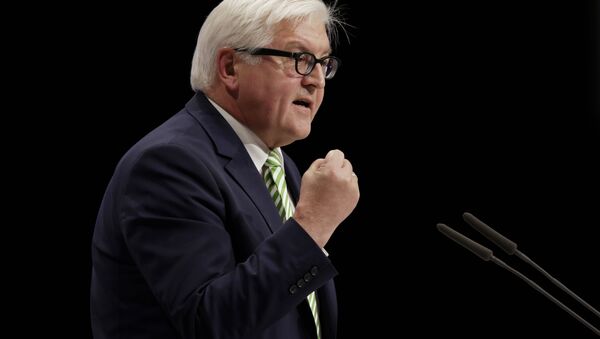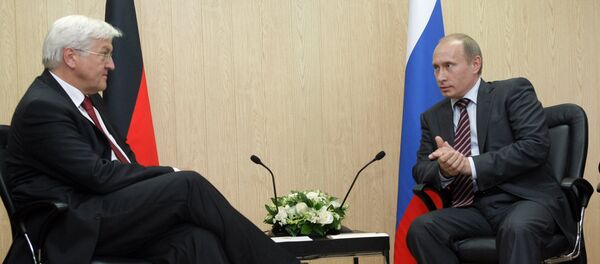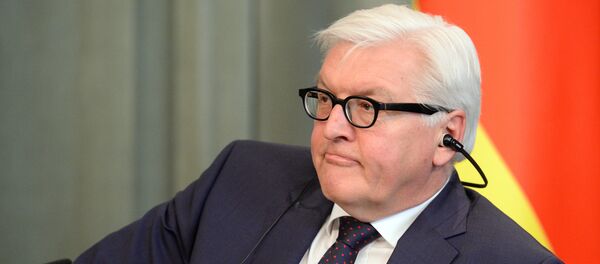BERLIN (Sputnik) — Steinmeier, nominated by the ruling coalition, was supported by 931 members of the country's Federal Convention, which is a special body comprising 630 members of the Bundestag and of the same number of representatives of Germany's states, while Christoph Butterwegge from the Alternative for Germany’s (AfD) party, who finished second, gathered the support of just 128 voters.
The fact that the Federal Convention is formed by the country's lawmakers and representatives of regional parliaments gives a chance to predict the results of the vote before the event takes place. Ahead of the Sunday vote, Steinmeier was expected to win the presidency, as his Social Democratic Party (SPD) had support of 384 delegates in the Federal Convention and Christian Democratic Union (CDU) and Christian Social Union (CSU), which were also members of the ruling coalition, had been represented by 539 people.
Steinmeier stood down last month to seek presidency after 77-year-old Gauck said last June he would not run for the second term, citing old age. His term expires on March 17.
Frank-Walter Steinmeier was born on January 5, 1956 in Detmold city in North Rhine-Westphalia.
In 1975, Steinmeier became a member of the German Social Democratic Party (SPD).
In 1982, he graduated from the Justus Liebig University in Giessen, where he studied law and political science.
In 1983-1986, Steinmeier was a law intern in Frankfurt am Main and in Giessen, and in 1986 he defended his doctoral dissertation.
In 1986-1991, Steinmeier was a scientific assistant at the Public Law and Political Science Faculty in the University of Justus Liebig.
In 1991, Steinmeier worked as a legal counsel for communication law and media policy in the State Chancellery of Lower Saxony.
Steinmeier served as a chief of staff of then Prime Minister of Lower Saxony Gerhard Schroeder from 1993 to 1994.
In 1994-1996, Steinmeier headed the Lower Saxony’s State Chancellery’s inter-agency and planning department.
In 1996-1998, he served as a state secretary of the head of Lower Saxony’s State Chancellery.
In 2005, Steinmeier took office of Germany’s Foreign Minister and became a vice-chancellor in November 2007.
In September 2008, Steinmeier was nominated as candidate from the SDP to serve as the country’s chancellor.
At the parliamentary elections in September 2008 the SDP received 23 percent of votes, and Steinmeier became a leader of the SDP in Bundestag.
Following the parliamentary elections in September 2013, the SDP created a coalition with the Christian Democratic Union (CDU) and the Christian Social Union.
In December 2013, Steinmeier became Germany’s foreign minister for the second time.
On November 16, 2016, Steinmeier was officially nominated as the coalition candidate for the post of Germany’s president.
Steinmeier is married and has one daughter. His spouse is an administrative law judge Elke Budenbender.



